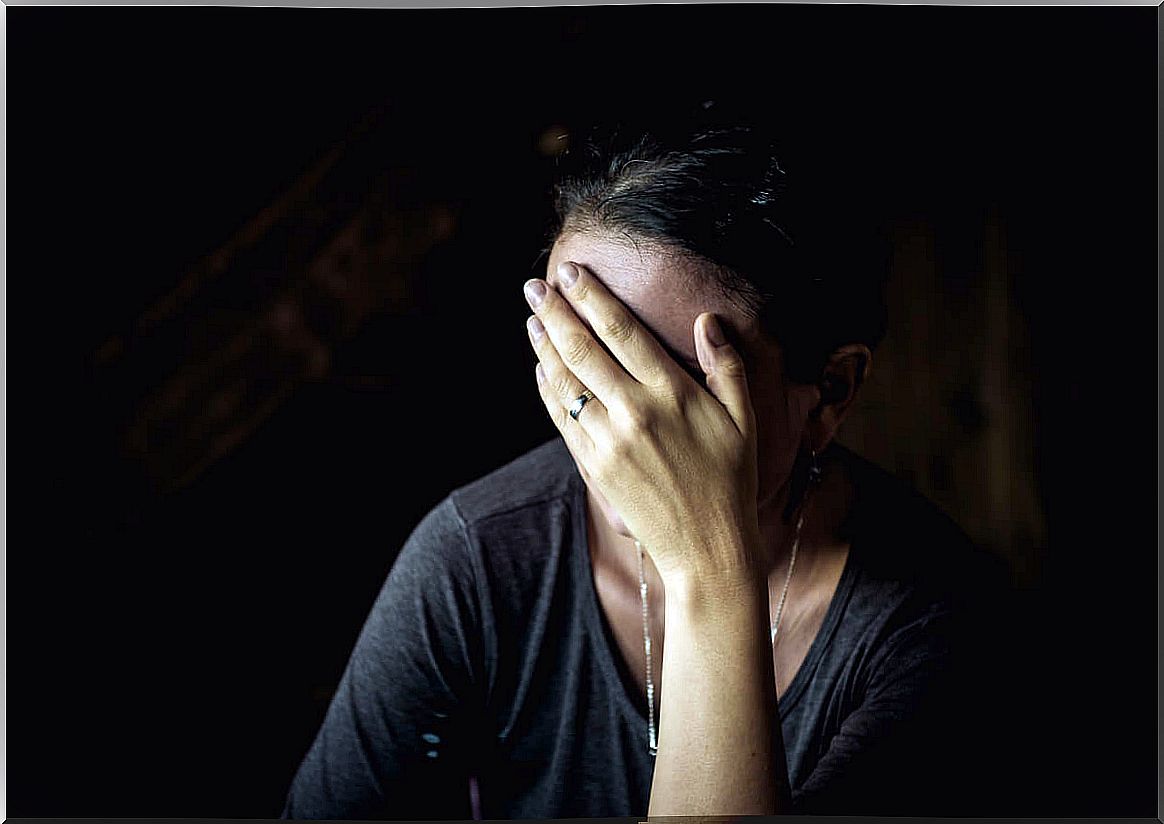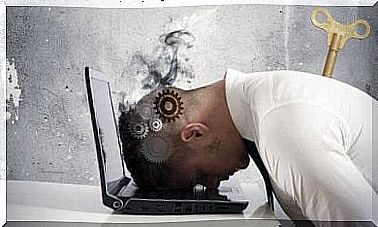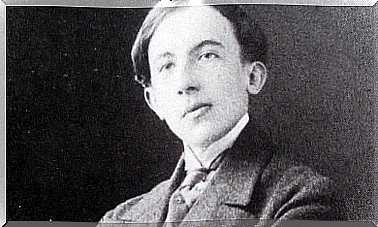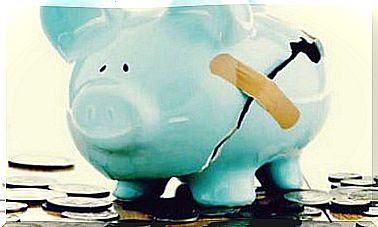Rumiative Thoughts And Depression

Rumiative thoughts and depression: is there a relationship between these concepts? According to an explanatory model of depression, yes. Susan Nolen-Hoeksema (1959-2013), American psychologist and professor of psychology at Yale University (USA), proposed in 1991 a theory that tried to explain what factors influenced the course of depression.
But what exactly does this model say? We will take a tour of it to find the effects of these types of thoughts in a disorder as serious as depression and finally we will talk about a scientific review that also talks about this possible relationship.
Ruminant thoughts and depression
Susan Nolen-Hoeksema developed an explanatory model of depression called response styles theory. Through her theory, the psychologist suggests that if the person suffering from depression manifests a ruminative thinking style (ruminative thinking) at the first symptoms of the disorder, this style will influence the duration and severity of the disorder. That is, the greater the number (and intensity) of ruminative thoughts, the longer the duration and severity of the depression.
In other words, according to the author of the model, the person’s ruminative thoughts would make depression chronic and exacerbate its symptoms. In contrast, in people who show an active style of thinking, based on distraction or problem solving, the disorder would be less severe and would not become chronic.

Rumination and response styles
Before continuing to explain the Nolen-Hoeksema model, we will explain what ruminative thoughts consist of (or a ruminative response style, according to the author). It is worth mentioning that there is a small nuance between both concepts.
Thus, while ruminative thoughts (rumination) imply an obsessive mental pattern in which a person oscillates between the different aspects of a question (going from one thought to another without finding any solution, turning things over); Rumiative response style was defined by Nolen-Hoeksema as a mental process that leads us to focus attention on the symptoms of the disorder and its implications for oneself.
In this way, we found that the ruminative response style would focus on the symptoms of the disorder and ruminative thoughts on things in general. Once this little nuance is made, we are going to continue using both concepts interchangeably.
When do ruminant thoughts appear?
Ruminant thoughts do not only appear in people with depression, but also in people without any mental disorder or with some other type of disorder (for example, an anxiety disorder). However, when they appear in people with depression (always according to Susan’s model), the person does not implement any coping strategy, but rather devotes himself to thinking about his own symptoms and their consequences.
In short, the patient is not concerned with his problem, but is (incessantly) concerned with it. In this sense, it does nothing to change your situation.
Remember (or clarify) here that this response pattern is not manifested by all people with depression, logically; The author of the model only talks about the consequences of said pattern in people who do manifest it.
Why do these thoughts appear?
Continuing with Susan Nolen-Hoeksema’s theory of response styles, as we have seen, there would be a relationship between ruminative thoughts and depression. The author suggests that the origin of these types of thoughts arises from two factors.
- On the one hand, of a childhood learning by modeling (that is, we would reproduce, consciously or unconsciously, models that we have learned during childhood).
- And on the other, insufficient or inappropriate socialization practices, which would not provide the patient with a repertoire of more adaptive behaviors (necessary to cope with depression).
Effects of Ruminative Thoughts in Depression
According to the author of the model, there are a series of mechanisms that allow us to understand why these types of thoughts influence and worsen depression. Which are? We found four.
Appearance of vicious circles
Vicious cycles occur between the patient’s depressed mood and the negative cognitions that arise from it. In this way, the patient would enter a loop: his mood, being depressed, would negatively influence his cognitions; these, in turn, would increase the depressed mood.
Effective solutions are not generated
Another mechanism that would explain the relationship between ruminative thoughts and depression would be the failure to generate effective solutions by the patient. That is, as the person is too busy worrying about their symptoms, that would prevent the implementation of an effective solution to change their situation or their mood.
Interference occurs
By continually ruminating, there is an interference of instrumental behaviors that could provide us with positive reinforcement or pleasure. In turn, we lose a sense of control. In short: if we are ruminating, we cannot apply adaptive behaviors and therefore we “anchor” ourselves in depression.
Weakening of social support
Finally, according to S. Nolen-Holeksma, the weakening of social support would also arise from the context of ruminative thoughts and depression.
Thus, the people around them would end up rejecting the person with depression or even criticizing them, seeing that they are continuously worrying about their situation without doing anything to change it. It may sound unfair, but this happens and the environment is a key piece to overcome a depression (more specifically, perceived social support).

Neurosciences, depression and rumination
Rayner, Jackson and Wilson (2016) conducted a scientific review to try to shed light on the possible relationship between ruminant thoughts and rumination. Through it, they analyzed the findings of 59 functional neuroimaging studies in adults with unipolar depression.
The authors found the following: there are two neurocognitive networks that could explain part of the symptoms of depression. These are: the autobiographical memory network (AMN) and the cognitive control network (CCN). In their review, Rayner et al. (2016) found that AMN hyperactivity is related to three symptoms of depression: ruminative thoughts, self-blame, and pathological parenting.
A weakened or abnormal functioning of the other network, CNN, was also found, which was related to negative automatic thoughts (Aaron Beck’s PANs, similar to ruminant thoughts), low concentration and cognitive distortions.
As we have seen, ruminative thoughts and depression are closely related. Thus, these types of thoughts could worsen the course of depression, so treating them in therapy properly can help reduce its impact and its severity. There are multiple techniques that allow us to stop these types of thoughts, such as stopping thinking and complementary techniques, such as relaxation.









